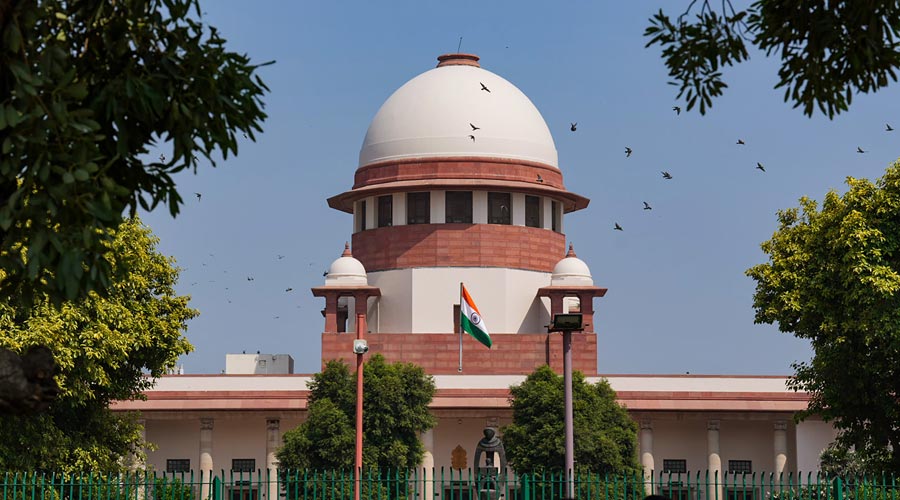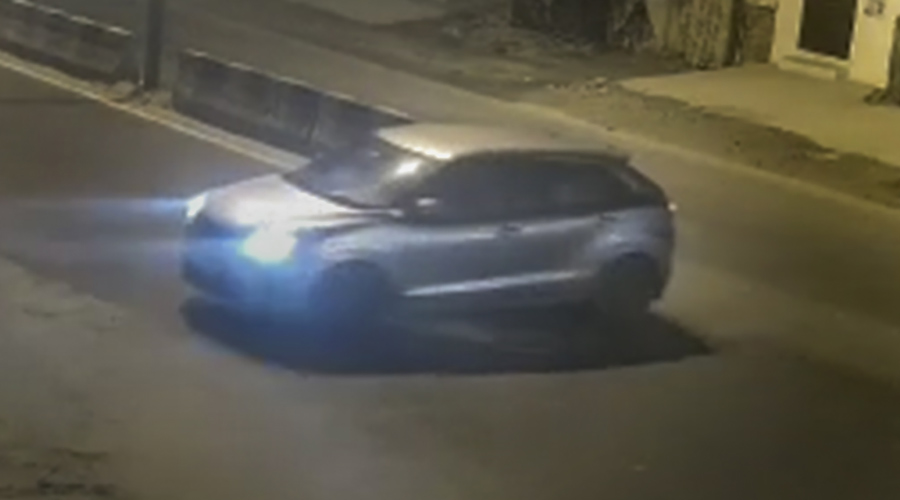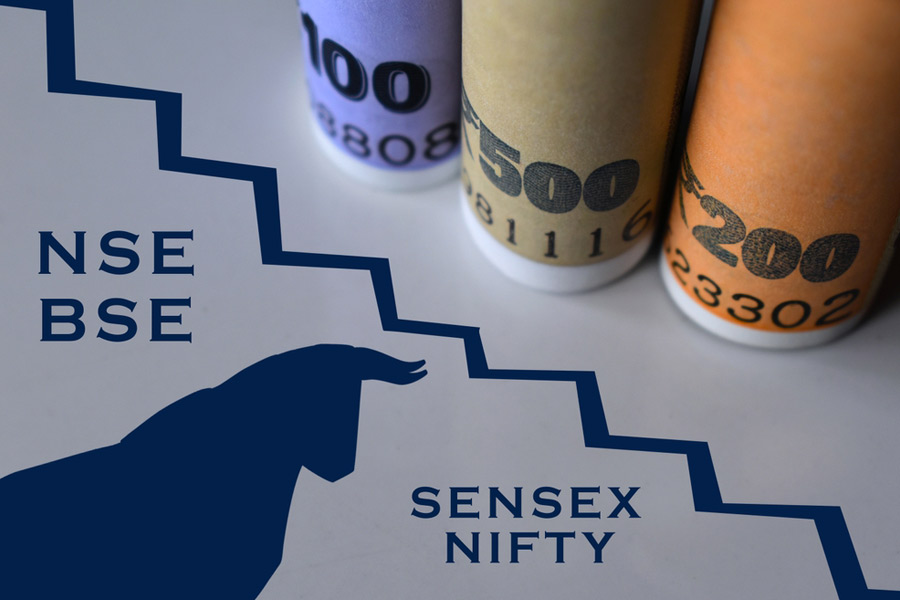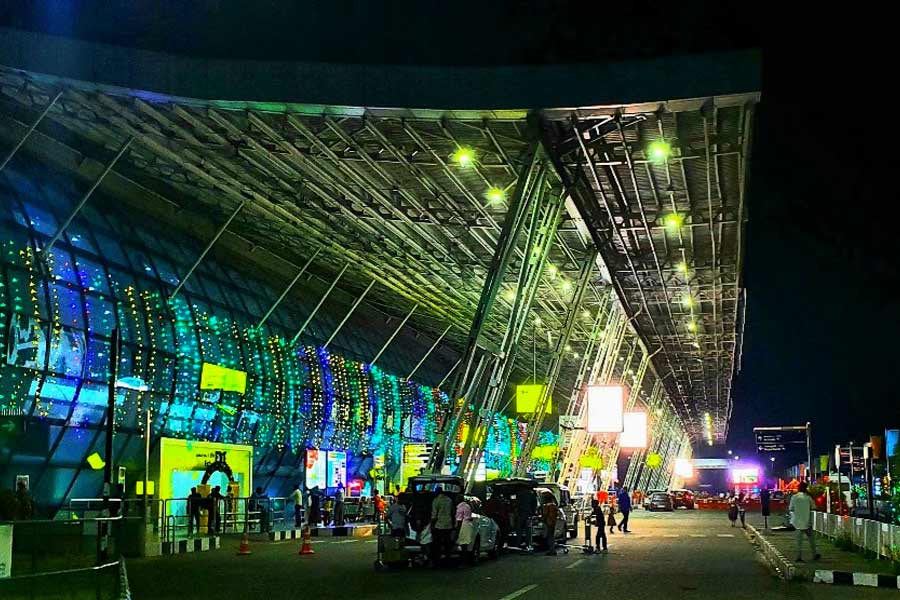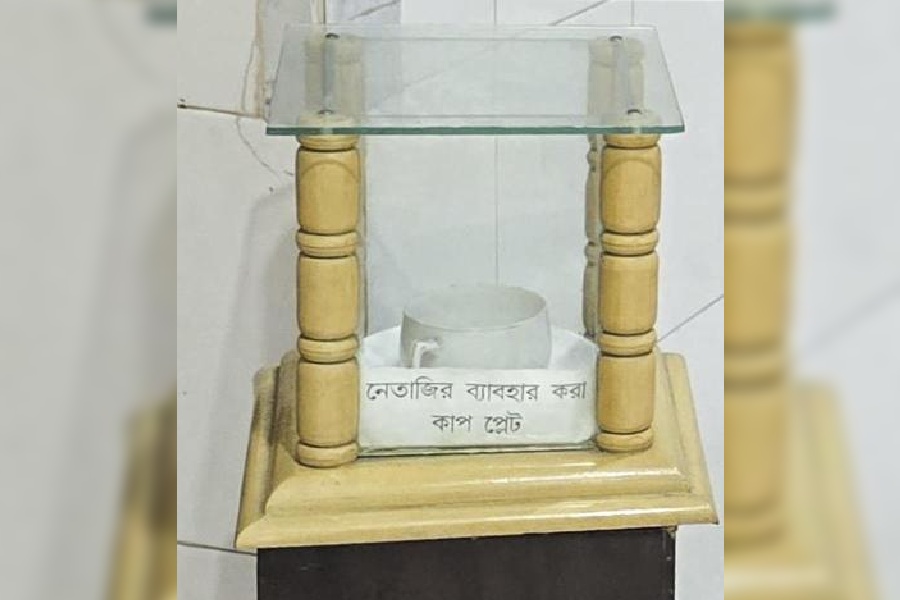The Supreme Court on Friday rapped Delhi police for their delay in acting on alleged hate speeches delivered at a “Dharam Sansad” here, expressing surprise that the FIR was registered five months after the December 2021 event and no chargesheet had yet been filed.
A video, purportedly of the December 2021 event, shows men and women in saffron robes pledging to turn India into a “Hindu Rashtra” and chorusing: “We shall fight; we shall die for and, if necessary, we shall kill.”
A bench headed by Chief Justice of India D.Y. Chandrachud directed the Delhi police — who report to the Union home ministry — to file within two weeks a status report on the steps taken against the accused.
The police had earlier tried to close the complaints, saying no hate speeches were delivered at the Hindu Vahini-organised event, and filed the FIR only after being chided by the apex court.
“The incident takes place on the 19th of December, 2021; the FIR is registered five months later on May 4, 2022. Why do you require five months to register an FIR?” the bench, which included Justice P.S. Narasimha, asked additional solicitor-general K.M. Natraj, who appeared for the Centre.
Justice Chandrachud said: “... The FIR was registered after five months. What steps have you taken? How many arrests have been made? Who is the IO (investigating officer)?”
On April 14 last year, the police had told a different bench of the apex court that they had “closed” the three complaints they had received about the event after finding that no “hate words targeting any particular community” were uttered or genocide calls made.
The force claimed the participants had gathered “to save the ethics of their community”. However, the apex court had slammed the police and asked them to file a “better affidavit”. Subsequently, the police registered an FIR on May 4.
On Friday, Natraj told the court that the police were verifying the allegations and sought time to place the records before the bench. He said he would file a counter-affidavit stating the latest position and the guidelines laid down by the apex court on dealing with hate speeches.
“But how has it (guidelines) been followed when the FIR is registered five months after the incident and no action is taken till now?” the bench said.
The bench was hearing a contempt application moved last year by Mahatma Gandhi’s great-grandson Tushar Gandhi against then Delhi police commissioner Rakesh Asthana.
Advocate Shadan Farasat, who represented Gandhi, told the bench that some people at the event took a “Nazi-style mass oath” but the police failed to register an FIR for five months and had not yet filed a chargesheet. Natraj said the police would conduct investigations at their own pace and in accordance with rules.
Amendment bid
The Union home ministry on Friday told the Supreme Court that the Centre had begun a process of consultations towards a comprehensive amendment of the criminal justice system to deal with hate speeches, instead of making piecemeal changes to existing statutes.
Besides inviting suggestions from the states and Union Territories, the government was consulting MPs, the Chief Justice of India, chief ministers, the Law Commission, National Judicial Academy, state judicial academies, Bar Council of India, state Bar councils and other stakeholders, it said.

